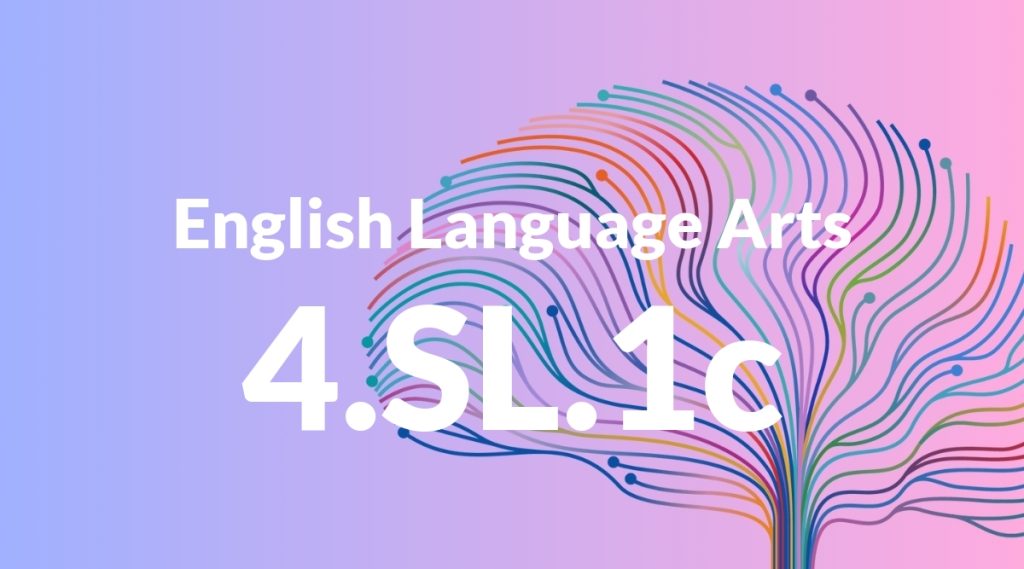Standard: 4.SL.1c – Pose and respond to specific questions to clarify or follow up on information, and make comments that contribute to the discussion and link to the remarks of others.
Grade level: Grade 4
Subject: English Language Arts
Domain: Speaking & Listening
Teacher Overview
This standard focuses on developing students’ ability to engage in meaningful discussions by asking clarifying questions, responding thoughtfully, and making relevant comments. These skills are crucial for effective communication and collaboration, both in academic settings and in everyday life. Before tackling this standard, students should have a foundational understanding of basic conversational etiquette, such as turn-taking and active listening. They should also be familiar with asking and answering simple questions.
After mastering this standard, students will be able to engage in more complex discussions, synthesize information from various sources, and present well-reasoned arguments.
Common Misconception 1
A common misconception is that any comment is acceptable as long as students are participating. This is incorrect because the goal is to contribute meaningfully to the discussion, which requires relevance and coherence.
Intervention 1
To address this misconception, use sentence starters and role-playing exercises to teach students how to make relevant comments that directly relate to the ongoing discussion.
Common Misconception 2
Another misconception is that asking questions indicates a lack of understanding or attention. This is incorrect because asking questions can actually demonstrate a deeper level of engagement and help clarify information.
Intervention 2
Encourage question-asking by modeling it in class and explaining that it is a valuable skill for deepening understanding and showing active participation.
Prerequisite Knowledge
Students should be comfortable with basic conversation skills, such as taking turns speaking and listening actively. They should also have some experience asking and answering simple questions.
Subsequent Knowledge
Students will develop advanced communication skills, including the ability to synthesize information from multiple sources, present arguments logically, and engage in more complex discussions.
Instructional Activities
- Role-playing discussions
- Using sentence starters
- Group projects with peer feedback
- Organizing classroom debates
- Conducting mock interviews




